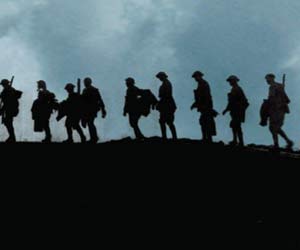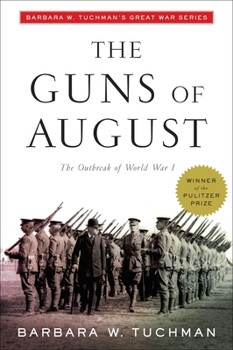The Guns of August: The Outbreak of World War I; Barbara W. Tuchman's Great War Series
Select Format
Select Condition 
Book Overview
PULITZER PRIZE WINNER - "A brilliant piece of military history which proves up to the hilt the force of Winston Churchill's statement that the first month of World War I was 'a drama never surpassed.'"--Newsweek Selected by the Modern Library as one of the 100 best nonfiction books of all time In this landmark account, renowned historian Barbara W. Tuchman re-creates the first month of World War I: thirty days in...
Customer Reviews
A Mobile Month?
My all-time favorite book about WWI
Amazing Book!!
WW1 comes alive with all its blunders and madness!
Outstanding
Simply the greatest history book ever written
A Wonderful Look At A Moment in 20th Century History
A superb history of the first month of the 1st World War.
The Guns of August Mentions in Our Blog

A few weeks ago, we published a post about how a reader's fave genre might match up with their personalities and it got some attention! Several of you mentioned that you'd like to see some other genres included. So here you go!

As one of the deadliest conflicts in history, WWI became known as “the war to end all wars.” The complexities of war call for a great deal of exploration and examination. Here, we offer a roundup of some of the best historical accounts, analyses, and novels involving the Great War.





